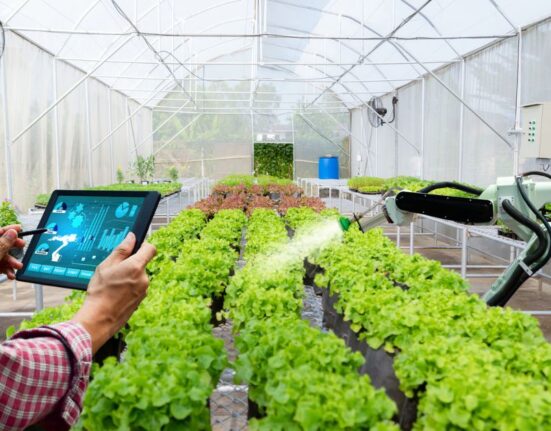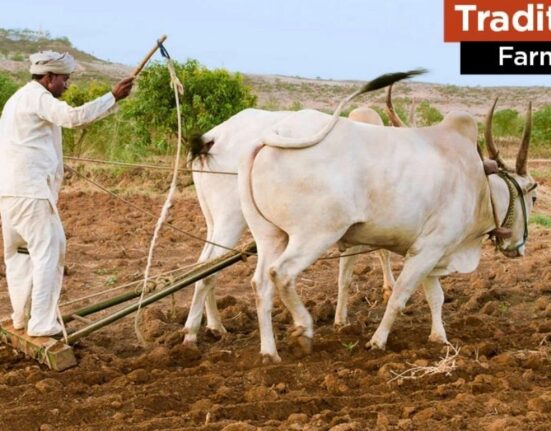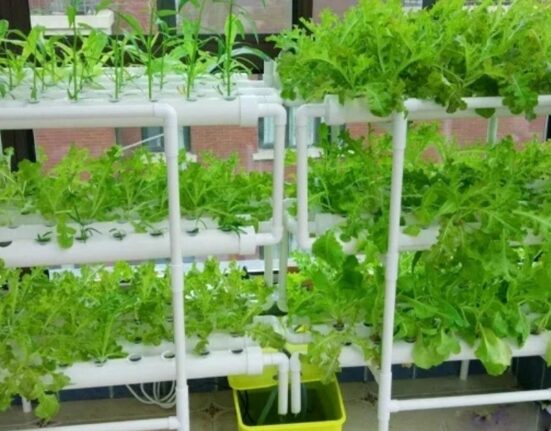In recent years, the global community has emphasized sustainable farming practices to combat our current environmental, economic, and social challenges. Farmers are encouraged to implement more sustainable farming techniques production methods with the growing concerns over climate change, soil degradation, and resource depletion. Waste reduction is one of the most significant aspects of sustainable agriculture, as it directly impacts environmental sustainability, productivity, and long-term profitability.
Waste in farming takes many forms, including food waste, water waste, chemical waste, and energy waste. Reducing waste helps preserve resources and ensures that agriculture can thrive while minimizing its environmental footprint. In this article, we explore various strategies and techniques farmers can adopt to cut waste and enhance sustainability in agriculture.
Causes of Food Waste in Farming
Food waste on farms occurs due to several factors, including:
- Inadequate Storage: Poorly maintained storage facilities and lack of proper temperature and humidity control lead to early spoilage and product deterioration.
- Overproduction: Inaccurate demand forecasting, strict grading and sorting standards, and market pressures contribute to overproduction and excess food waste.
- Harvesting Inefficiencies: Waste arises when crops are harvested too early or late, from labour shortages, improper equipment use, Flood Irrigation Pros and Cons and poor post-harvest handling.
- Aesthetic Standards: Consumer preference for visually perfect produce means that crops with blemishes or unusual shapes often get discarded, adding to food waste.
- Pests and Diseases: Crop losses due to pests and diseases can reach up to 40% annually, significantly affecting food availability.
- Market Access Issues: Small-scale farmers may struggle to reach profitable markets, leading to unsold produce that spoils.
Sustainable Agriculture Methods


sustainable crops examples aims to preserve the environment, maximize the use of available resources, and ensure agriculture’s long-term viability. These methods balance present agricultural needs with the capacity of future generations to provide for themselves. Typical sustainable farming practices include organic farming, regenerative agriculture, and permaculture.
- Organic Farming: This method avoids synthetic fertilizers and pesticides, focusing on natural processes to enhance soil health, improve biodiversity, and reduce chemical runoff. Practices like crop rotation and composting improve crop management and reduce waste.
- Regenerative Agriculture: Regenerative agriculture emphasizes soil health, biodiversity, and water retention. It uses cover cropping, no-till farming, and agroforestry to produce resilient crops. These methods help reduce food waste by improving crop yields.
- Permaculture: This approach creates self-sustaining agricultural systems that mimic natural ecosystems. Techniques like zoning, crop residue management, and composting food waste reduce the need for external inputs, making farming more sustainable and reducing waste.
Sustainable Farming Techniques
- Crop Rotation: sustainable farming methods and techniques improves soil fertility and reduces pest and disease spread.
- Conservation Tillage: Retaining crop residues in fields helps reduce soil erosion and lowers production costs.
- Agroforestry: Including shrubs and trees in agricultural systems enhances soil protection, improves water quality, and reduces greenhouse gases.
- Integrated Pest Management: Long-term pest prevention techniques help reduce crop losses and food waste.
- Water Management: Techniques like mulching and conservation tillage help conserve water and improve crop yields.
Farmers can reduce food waste by implementing sustainable practices while promoting environmental health and long-term agricultural productivity.
Embracing Circular Economy Principles
A circular economy focuses on reducing, reusing, and recycling resources to minimize waste and promote sustainability. In agriculture, this can mean a shift from traditional linear production models (take, make, dispose) to more regenerative, circular systems.
Composting Organic Waste: Farmers can reduce waste by composting organic materials, such as crop residues, manure, and food scraps. This process turns these waste products into valuable organic fertilizers that improve soil health, decrease the need for artificial fertilizers and improve water retention. Composting helps close the nutrient loop on the farm, ensuring that waste is put back into the soil to support future crops.
Utilizing Crop Rotation and Polyculture: By rotating crops and planting diverse species, farmers can reduce waste caused by pest infestations, soil degradation, and monocropping. Polyculture systems, which incorporate multiple crop species in a single field, make better use of space and resources while reducing the reliance on synthetic pesticides and fertilizers. These techniques help balance the ecosystem on the farm, Green Magic Homes leading to fewer yield losses and fewer chemical inputs, both of which contribute to waste reduction.
Reducing Food Waste Through Efficient Harvesting and Storage
One of the most urgent issues facing sustainable agriculture is food waste. It is believed that over one-third of the food produced worldwide is lost or wasted. On the farm, food waste can occur during harvesting, storage, and transportation. However, several strategies can help minimize this waste.
Precision Harvesting: Farmers can adopt precision harvesting techniques to ensure that crops are picked at the optimal time for maximum yield and minimal loss. This can be achieved through sensors, GPS systems, and drones that help farmers monitor crop maturity. By knowing when to harvest, farmers can avoid overripe or underripe crops, which are more likely to spoil or go to waste.
Cold Storage and Preservation Techniques: Cold storage is essential for prolonging the shelf life of harvested crops, especially perishable goods like fruits and vegetables. Farmers can invest in refrigeration systems and climate-controlled storage to prevent spoilage and extend the marketability of their produce. Additionally, Saltwater Farming preserving crops through canning, drying, or freezing methods can reduce waste by allowing farmers to store surplus crops and sell them during off-seasons.
Waste-to-Value Initiatives: Farmers can also explore ways to turn “waste” into valuable products. For example, misshapen or cosmetically imperfect fruits and vegetables can be processed into jams, sauces, or juices. This reduces waste and adds value to products that might otherwise be discarded. Developing value-added products from agricultural waste creates new market opportunities while helping reduce food loss.
Reducing Water Waste Through Smart Irrigation Systems
Water is a critical resource in farming, yet it is often used inefficiently. Traditional irrigation systems usually waste large amounts of water due to overwatering, evaporation, and runoff. Sustainable irrigation practices focus on using water more efficiently and reducing waste.
Drip Irrigation: One of the best water-saving techniques is drip irrigation. Drip irrigation delivers water straight to the plant’s root zone, reducing evaporation and runoff through a network of tubes and emitters. This system allows farmers to provide just the right amount of water to crops, reducing waste and ensuring that crops receive optimal hydration. What Are Cash Crops Drip irrigation can be especially helpful in drought-prone areas where conserving water is a top concern.
Rainwater Harvesting: Farmers can also reduce their reliance on municipal or groundwater sources by harvesting rainwater. Installing rainwater collection systems, such as tanks or reservoirs, allows farmers to store water for irrigation during dry periods. This practice conserves water and reduces the environmental impact of excessive water extraction from natural sources.
Soil Moisture Monitoring: Soil moisture sensors are increasingly used to monitor soil moisture levels. These sensors provide real-time data on how much water is in the soil, allowing farmers to adjust irrigation schedules accordingly. By ensuring that water is applied only when necessary, farmers can avoid overwatering and minimize water waste.
Reducing Chemical Waste Through Integrated Pest Management


Overusing chemical pesticides and fertilizers is a major contributor to waste and environmental harm in conventional farming systems. These substances can contaminate water and soil, pollute ecosystems, and harm beneficial organisms. Integrated Pest Management (IPM) offers a more sustainable pest and nutrient management approach that minimizes chemical use and waste.
Biological Pest Control: One key principle of IPM is using biological control agents, such as natural predators, parasites, and pathogens, to control pest populations. What Is Agriculture For example, farmers can introduce beneficial insects like ladybugs or predatory mites to control aphids or other crop-damaging pests. This minimizes waste and the environmental impact by lowering the demand for chemical pesticides.
Crop Diversity and Companion Planting: Diversifying crops and using companion planting techniques can help reduce pest pressure naturally. Certain plants can draw helpful insects or repel pests, which lessens the need for chemicals. interventions. For example, planting garlic or marigolds alongside tomatoes can deter common pests. By creating a diverse, balanced ecosystem, farmers can reduce the need for synthetic chemicals and reduce waste.
Fertility Management: Farmers can reduce chemical waste by improving fertility management practices. Instead of relying heavily on synthetic fertilizers, they can enrich the soil with organic amendments such as compost, cover crops, or manure. Farmers can reduce fertilizer waste and improve nutrient use efficiency by monitoring soil health and adjusting nutrient application rates.
Farm Waste Reduction and Energy Efficiency
Energy use is another area where farmers can reduce waste and increase sustainability. Many traditional farming operations rOne of the most urgent issues facing sustainable agriculture is food waste. It is believed that over one-third of the food produced worldwide comes from Farmers who may reduce their energy waste and carbon footprint by adopting energy-efficient practices.
Renewable Energy Sources: sustainable farming practices can reduce energy waste by incorporating renewable energy sources. Solar panels, wind turbines, and biomass systems can provide clean, renewable energy for irrigation, heating greenhouses, and powering machinery. Farmers reduce waste and lower their energy costs over time by shifting away from fossil fuels.
Energy-Efficient Machinery: Investing in energy-efficient machinery, such as electric tractors, combines, or harvesters, can significantly reduce fuel consumption on the farm. These machines often use less energy while performing the same tasks as traditional gasoline or diesel-powered equipment. Additionally, regular maintenance of farm machinery ensures that it operates efficiently and reduces unnecessary energy consumption.
Optimizing Operational Efficiency: Farmers can also cut energy waste by optimizing their operational practices. For example, minimizing the number of trips made by tractors or harvesters can reduce fuel consumption. Streamlining workflows and using precision farming technologies, such as GPS-guided tractors, can also increase the efficiency of farm operations.
Implementing Waste Audits and Continuous Improvement
Farmers must first identify where waste occurs in their operations to successfully reduce waste. Regular waste audits can help pinpoint areas where inefficiencies arise, whether through food, energy, or water waste. By systematically tracking waste, farmers can develop strategies to address these issues and monitor their progress.
Data-Driven Decision Making: Farmers can leverage data analytics to make informed decisions about resource use. Precision agriculture technologies, such as sensors, Real-time data on crop health is provided by satellite photography and drones. Soil conditions and water use. By analyzing this data, farmers can optimize theirallocate resources more efficiently, cut waste, and enhance sustainability in general.
Education and Collaboration: Farmers can also benefit from collaborating with other producers, researchers, and sustainability companies to exchange cutting-edge waste management techniques and best practices for reduction. Participating in educational programs, attending workshops, and joining sustainability initiatives can help farmers stay informed about the latest technologies and strategies for cutting waste.
Why Is Sustainable Farming Important?


Sustainable farming offers a range of significant benefits:
- Soil Health: Cover cropping, conservation tillage, and composting enhance soil quality, promoting better plant growth and long-term fertility.
- Water Conservation: Water-saving strategies reduce farmers’ costs and lessen their environmental impact, ensuring efficient use of water resources.
- Biodiversity: sustainable farmland boosts biodiversity, helping crops become more resilient to diseases and climate change, leading to healthier ecosystems.
- Climate Mitigation: sustainable agriculture practices helps sequester carbon and reduce greenhouse gas emissions by fostering healthier ecosystems and minimizing environmental footprints.
- Reduced Food Waste: sustainable farms, including better demand forecasting, soil management, and optimized harvesting, reduce overproduction and food waste on farms.
- Food Security: farming sustainably enhances food security in communities by decreasing food waste, promoting crop variety, and supporting local markets, contributing to a more resilient food system.
Conclusion
Cutting waste is a critical component of three sustainable agriculture practices, as it helps reduce environmental impact, conserve resources, and improve farm profitability. By embracing circular economy principles, reducing food waste, implementing efficient irrigation systems, adopting Integrated Pest Management, improving energy efficiency, and conducting waste audits, farmers can significantly minimize waste on their farms. With the right tools, strategies, and mindset, The agriculture industry can improve its resilience, sustainability, and waste management.
Making sure that the resources required for their survival are available to future generations. Through collaboration, education, and technological innovation, farmers can continue to evolve and adopt practices that cut waste and promote a more sustainable and prosperous agricultural future worldwide.
FAQ
What is sustainable farming?
Sustainable farming refers to agricultural practices that focus on long-term ecological balance, ensuring soil health, water conservation, and the responsible use of resources while producing food and other agricultural products.
How does sustainable farming benefit the environment?
Sustainable farming practices reduce soil erosion, conserve water, improve soil health, and enhance biodiversity. These techniques lessen the consequences of climate change. And minimize greenhouse gas emissions.
Why is soil health important in sustainable farming?
Healthy soil supports plant growth, increases water retention, and fosters a healthy ecosystem. Crop rotation and composting are two methods that improve soil quality. Fertility and resilience, ensuring crops grow without over-relying on chemical fertilizers.
How does sustainable farming reduce food waste?
Sustainable farming practices involve accurate demand forecasting, efficient harvesting techniques, and the reduction of overproduction, all of which help minimize food loss and waste at the farm level.






